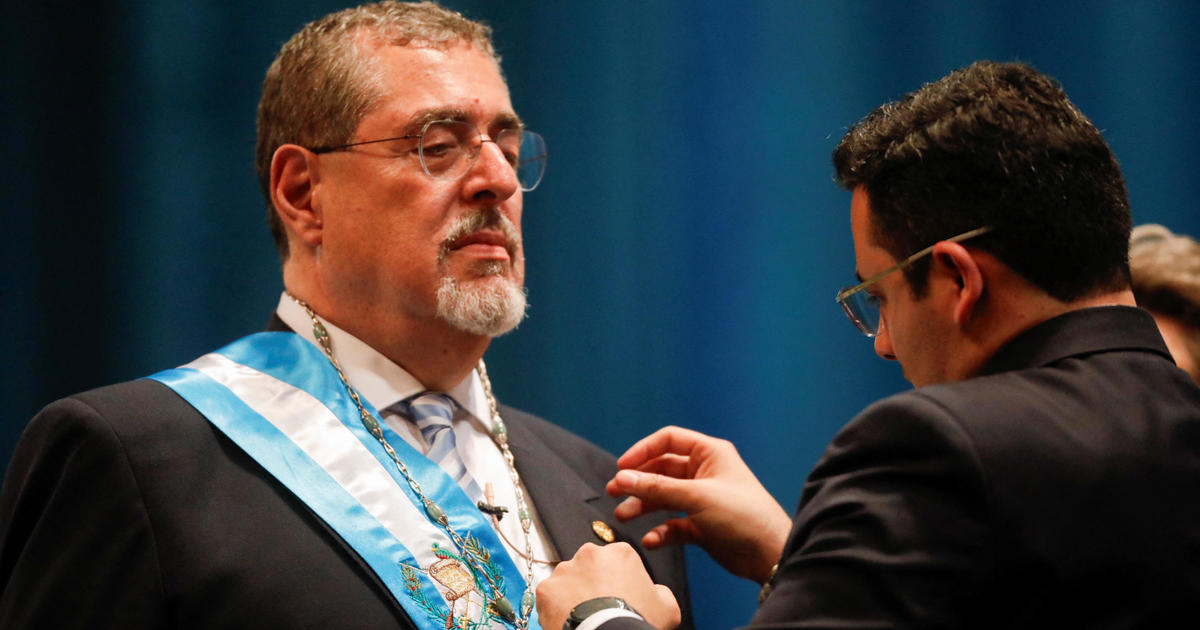Bernardo Arévalo prepares to resume the presidency, the country’s 52nd leader. The inauguration, initially scheduled as a festive celebration in Guatemala City’s Plaza de la Constitucion, was by delays and clashes between supporters and riot police.

Also Read: Denmark’s King Frederik X Takes the Throne after Abdication of Queen
Bernardo Arévalo, an academic, diplomat, and son of a president from the mid-20th century, won in the August 2023 elections.
However, his anti-corruption stance and outsider status have faced opposition from interests in Guatemala. The Attorney General’s office, led by Consuelo Porras, pursued legal actions against Arévalo, attempting to prevent him from taking office.
Guatemalan citizens, who had awaited a festive inauguration celebration in Guatemala City’s Plaza de la Constitucion, were left frustrated by repeated delays.
The dissatisfaction culminated in citizens marching to the congress building, demanding an end to the delays and urging legislators to proceed with the inauguration.
Congress, tasked with attending the inauguration as a special session, witnessed bitter infighting over the recognition of the congressional delegation.
The leadership commission responsible for this recognition was perceived as being stacked with opponents of Bernardo Arévalo, concerns about intentional delays at weakening the president-elect.
Also Read: Lai Ching-te Elected as New Taiwan President
Bernardo Arévalo and his party, the Seed Movement, have decried the review of legislators’ credentials and alleged demands for unnecessary requirements not mandated by law.
International figures, including Samantha Power, administrator of the U.S. Agency for International Development, and Luis Almagro, secretary general of the Organization of American States, have expressed support for Arévalo.
They have called on the Guatemalan Congress to uphold the will of the people and transfer power to the newly elected president.
The Biden administration has sanctioned Guatemalan officials suspected of democracy. The attorney general, Consuelo Porras, has employed various legal tactics to hinder Arévalo’s transition.
Attempts to put Bernardo Arévalo on trial or in jail before assuming office have been met with condemnation. The attorney general’s office has sought to suspend the Seed Movement party, preventing its legislators from holding leadership positions in Congress.
Also Read: Gabriel Attal Appointed as France Youngest Prime Minister and First Gay PM
The communities of Guatemala have been supporting Arévalo, staging protests and demanding respect for the election results.
Their involvement underlines a movement against corruption and impunity, with citizens mobilizing to defend democracy.
Civil society, including human rights activists and advocacy groups, has been instrumental in pushing back against attempts to undermine the democratic process.
Bernardo Arévalo’s inauguration day was by drama, with Congress finally agreeing to recognize the Seed Movement party after temporary suspension.
The last-minute hurdles underlined the challenges Arévalo faces in reshaping Guatemala’s politics. The president-elect, aware of the difficulties ahead, remains optimistic about bringing change to a country weary of corruption and political-criminal elites.
As Bernardo Arévalo officially resumes office, messages of support pour in. The European Union, the United States, and regional leaders address their belief in the legitimacy of Arévalo’s election.
Also Read: China’s Satellite Launch Triggers Emergency Alert in Taiwan





/cloudfront-us-east-2.images.arcpublishing.com/reuters/PVKUKE6GK5POFBLEOV73WOUTPE.jpg)
















